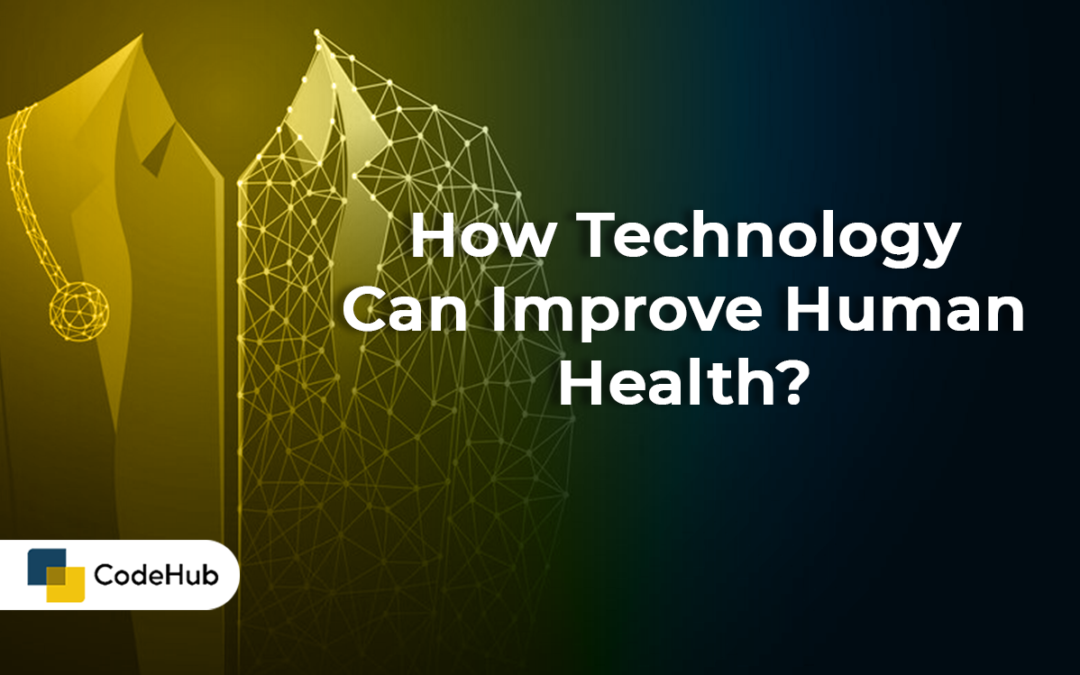Technology is a powerful tool that can have a positive impact on human health in many ways. Technology can help us prevent, diagnose, treat, and manage various diseases and conditions, as well as improve our well-being and quality of life. In this blog post, I will explore some of the ways that technology can enhance human health and the challenges and risks that need to be addressed.
Technology for Prevention and Diagnosis
One of the most important aspects of health is prevention. Technology can help us prevent diseases and infections by providing us with accurate and timely information, education, and awareness. For example, technology can enable us to access reliable health information online, use mobile apps to track our health indicators and behaviors, receive personalized health recommendations and reminders, and participate in online health communities and support groups.
Technology can also help us diagnose diseases and conditions faster and more accurately. Technology can enable us to use devices and sensors that can monitor our vital signs, blood pressure, glucose levels, heart rate, oxygen saturation, and other biomarkers. Technology can also enable us to use artificial intelligence (AI) and machine learning (ML) to analyze large amounts of data and images, such as medical records, lab tests, x-rays, MRI scans, CT scans, ultrasound scans, and genomic data. Technology can also enable us to use telemedicine and remote consultation to access health professionals and specialists from anywhere in the world.
Technology for Treatment and Management
Another important aspect of health is treatment. Technology can help us treat diseases and conditions more effectively and efficiently. Technology can enable us to use devices and implants that can deliver drugs, stimulate nerves, regulate hormones, replace organs, or enhance functions. Technology can also enable us to use robotics and automation to perform surgeries, procedures, or tasks that require precision, accuracy, or dexterity. Technology can also enable us to use virtual reality (VR) and augmented reality (AR) to create immersive and realistic simulations that can help us learn, train, or rehabilitate.
Technology can also help us manage diseases and conditions better and easier. Technology can enable us to use devices and apps that can remind us to take our medications, follow our treatment plans, or adhere to our lifestyle changes. Technology can also enable us to use devices and apps that can provide us with feedback, coaching, or motivation to improve our health outcomes. Technology can also enable us to use devices and apps that can connect us with our health care providers or caregivers who can monitor our progress, provide guidance, or intervene when needed.
Technology for Well-being and Quality of Life
Another important aspect of health is well-being. Technology can help us improve our well-being and quality of life by enhancing our physical, mental, emotional, social, and spiritual health. Technology can enable us to use devices and apps that can help us exercise more, eat better, sleep better, relax more, or meditate more. Technology can also enable us to use devices and apps that can help us cope with stress, anxiety, depression, or other mental health issues. Technology can also enable us to use devices and apps that can help us communicate with our friends, family, or community members who can provide us with support, companionship, or belonging.
Challenges and Risks of Technology for Health
While technology has many benefits for human health, it also has many challenges and risks that need to be considered. Some of the challenges and risks include:
- Ethical issues: Technology for health may raise ethical questions about privacy, consent, security, ownership, accountability, transparency, fairness, equity, inclusion, or human dignity.
- Social issues: Technology for health may have social implications such as digital divide, social isolation, cyberbullying, addiction, or misinformation.
- Environmental issues: Technology for health may have environmental impacts such as energy consumption, waste generation, pollution, or climate change.
- Regulatory issues: Technology for health may require regulatory frameworks that are adaptive, responsive, and inclusive to ensure safety, quality, and effectiveness of the technology.
Conclusion
Technology is a powerful tool that can have a positive impact on human health in many ways. However, technology is not a panacea and it needs to be used responsibly and ethically to ensure that it serves the best interests of humanity and the planet. Therefore, we need to be aware of the benefits and the risks of technology for health and engage in informed and critical dialogue and action to ensure that technology is used for good and not for evil.

